SEO Tactics for Healthcare Organizations
The importance of healthcare SEO cannot be overstated. In today's digital landscape, potential patients are increasingly turning to online search when seeking medical services.
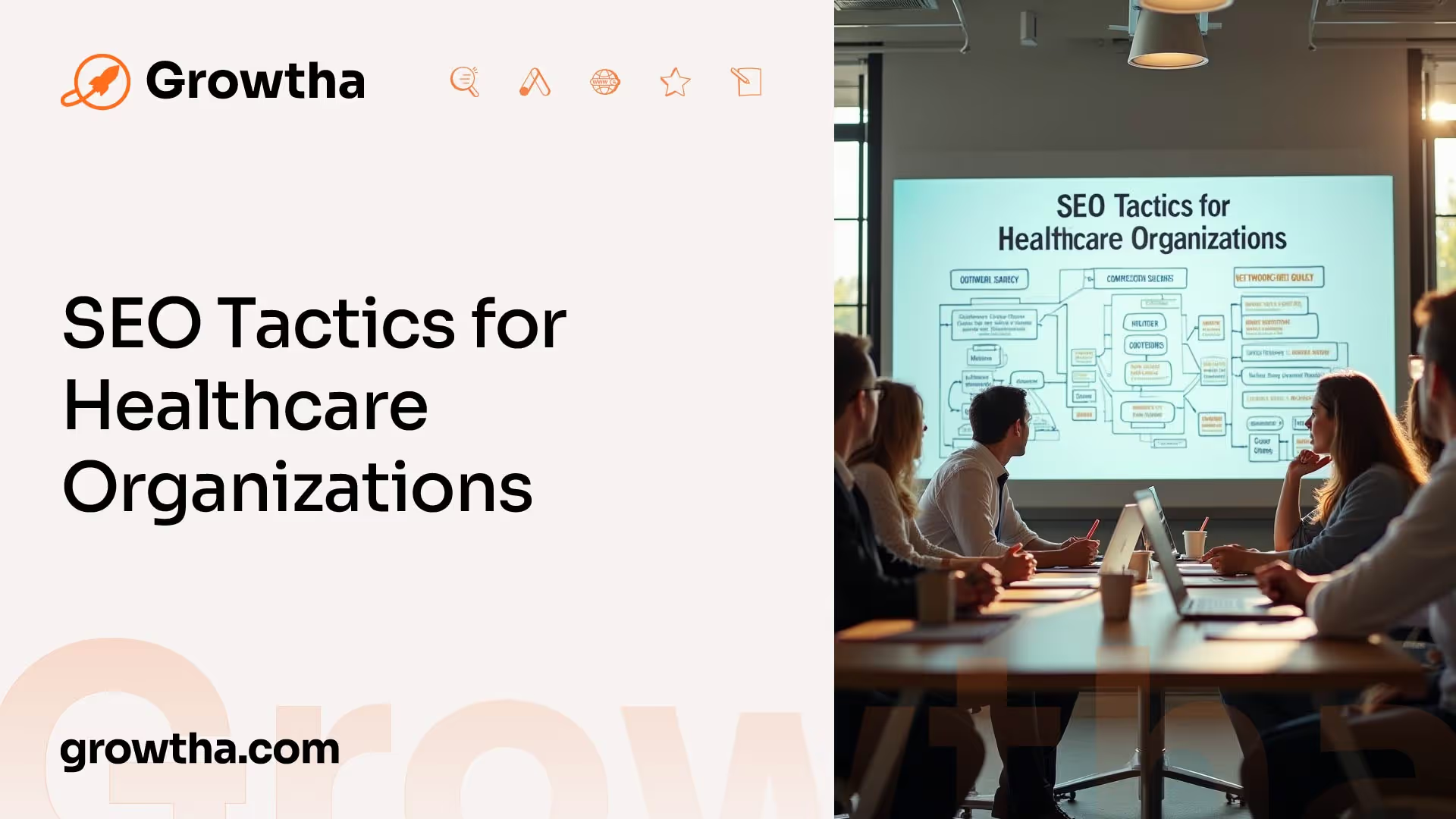

SEO Tactics for Healthcare Organizations
Healthcare SEO Marketing
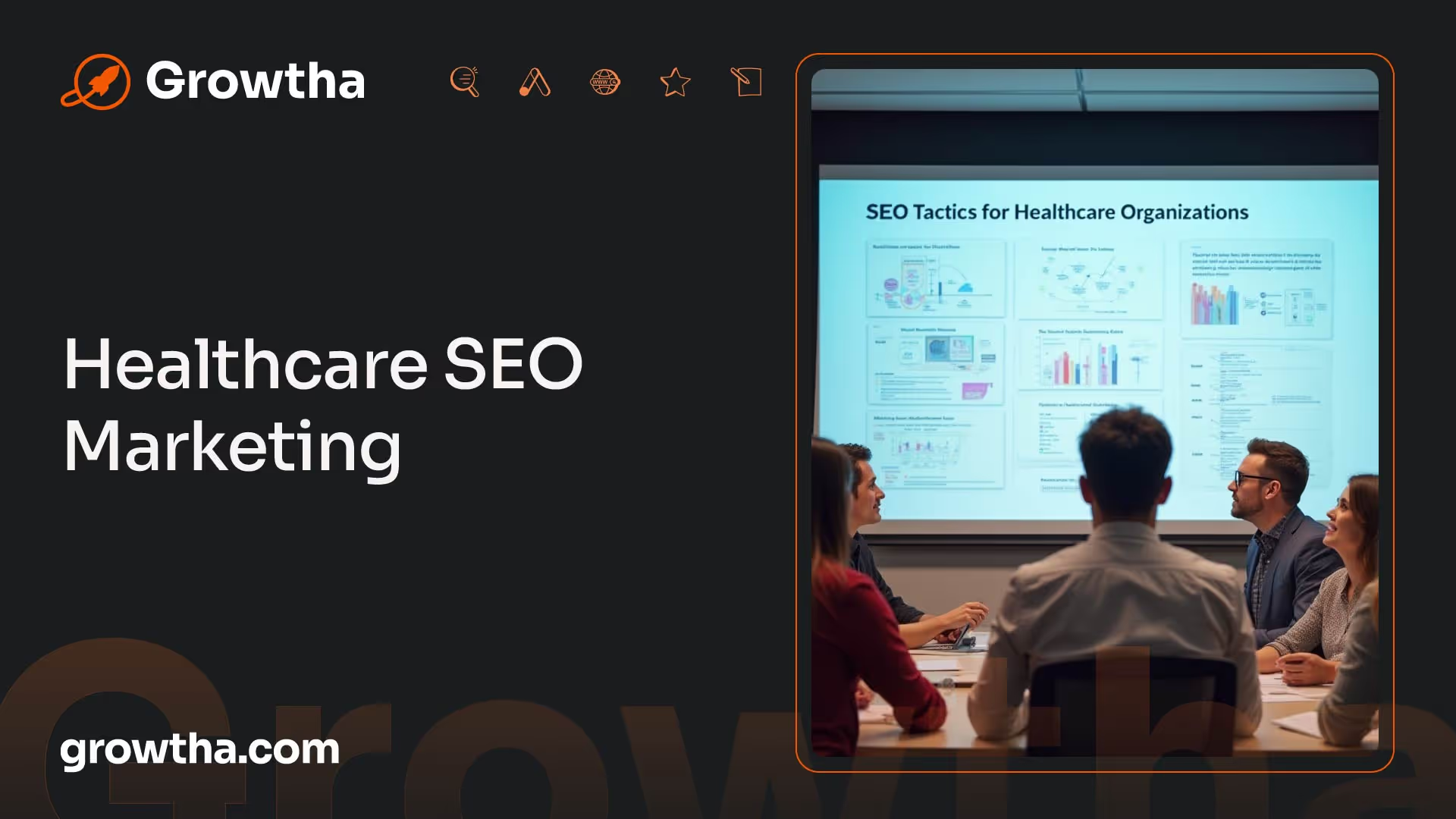
In the digital age, having a strong online presence is crucial for healthcare organizations. This is where healthcare SEO (Search Engine Optimization) comes into play. Healthcare SEO involves implementing strategies to boost a healthcare provider or business's web presence, create more visibility, and achieve higher rankings on search engine results pages (SERPs) such as Google [1].
Importance of SEO in Healthcare
The importance of healthcare SEO cannot be overstated. In today's digital landscape, potential patients are increasingly turning to online search when seeking medical services. In fact, research indicates that patients search for medical services online twice as much as relying on referrals and other traditional means of finding healthcare providers [1].
By implementing effective SEO strategies, healthcare organizations can ensure that their services and information are easily discoverable by potential patients. A solid SEO strategy helps healthcare providers reach a wider audience, build trust, and foster long-term relationships with patients. It provides transparency, predictability, and mobile-friendly experiences, all of which are paramount in the healthcare industry [1].
Benefits of Healthcare SEO
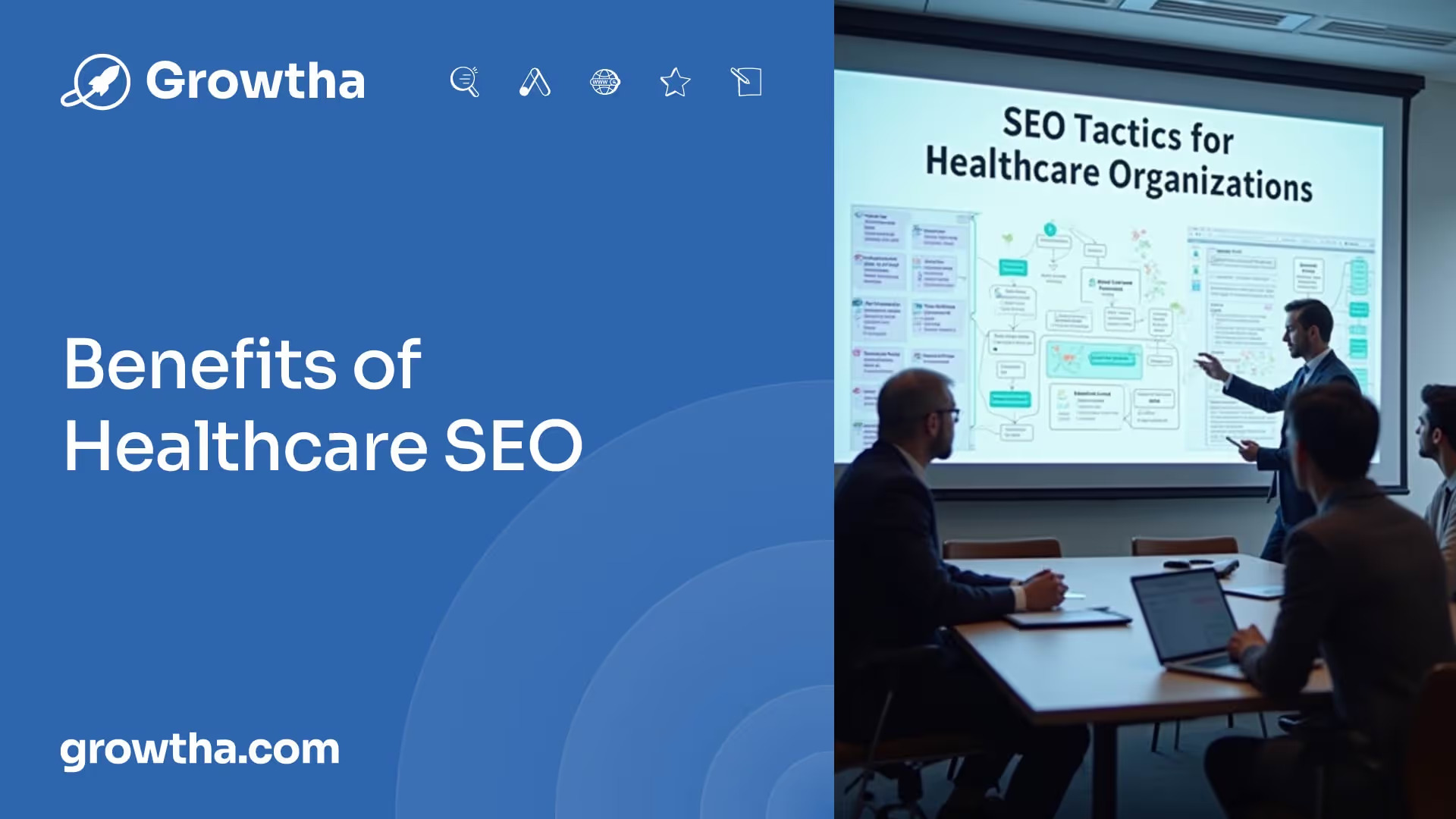
Implementing healthcare SEO offers numerous benefits to healthcare organizations. Some of the key advantages include:
- Increased visibility: By optimizing their online presence, healthcare organizations can improve their visibility on search engine results pages. This means that potential patients are more likely to find and engage with their services.
- Expanded reach: Effective SEO strategies can help healthcare providers reach more people who are actively searching for their specific services. This allows organizations to attract new patients and expand their patient base.
- Building trust: A strong online presence can help healthcare organizations build trust with potential patients. When a healthcare provider appears prominently in search results, it conveys credibility and can instill confidence in patients seeking their services.
- Long-term patient relationships: By providing a positive online experience and offering valuable information, healthcare organizations can foster long-term relationships with patients. This can lead to increased patient loyalty and retention.
To maximize the benefits of healthcare SEO, organizations should consider implementing strategies such as local SEO for brick-and-mortar providers, strategic keyword optimization, and content marketing tailored to their target audience. By investing in healthcare SEO, organizations can position themselves for success in the digital realm and ensure that they are effectively connecting with those who are seeking their services.
Key Strategies for Healthcare SEO

To enhance online visibility and attract more patients, healthcare organizations need to implement effective SEO strategies. Here are three key strategies for healthcare SEO: local SEO for healthcare providers, strategic keyword optimization, and content marketing for healthcare.
Local SEO for Healthcare Providers
Local SEO plays a vital role for brick-and-mortar healthcare providers, as patients often seek quick access to nearby healthcare services. Optimizing local SEO helps healthcare organizations appear in relevant local search results, increasing their chances of attracting local patients. Some important tactics for local SEO include:
- Claiming and optimizing Google My Business profiles to ensure accurate and up-to-date information about the healthcare organization's location, contact details, and services.
- Building citations in online directories specific to the healthcare industry.
- Encouraging patients to leave reviews on platforms like Google My Business, which can improve the healthcare organization's local search rankings and reputation.
Strategic Keyword Optimization
Strategic keyword optimization is a fundamental aspect of healthcare SEO. By incorporating relevant medical keywords into website content, headings, URLs, meta descriptions, and image alt tags, healthcare organizations can improve their visibility in search engine results [1]. Conducting keyword research is an effective strategy to identify and target the most relevant keywords for a healthcare organization's campaign. Some tips for strategic keyword optimization include:
- Focusing on long-tail keywords that are more specific and aligned with the healthcare organization's services.
- Optimizing individual pages of the website for different keywords to target a wider range of search queries.
- Analyzing and monitoring keyword performance to identify opportunities for improvement and adjustment.
Content Marketing for Healthcare
Content marketing is a powerful strategy for healthcare organizations to connect and engage with patients. By producing high-quality, relevant, and valuable content, healthcare organizations can establish themselves as authoritative sources in their field. This approach aligns with Google's emphasis on helpful content, favoring websites that deliver actual value to readers. Some key content marketing tactics for healthcare organizations include:
- Creating blog posts, articles, and guides that address common healthcare concerns, provide educational information, and answer frequently asked questions.
- Developing patient-centric content that focuses on the needs and interests of the target audience.
- Incorporating multimedia elements such as videos, infographics, and interactive tools to enhance engagement and provide more comprehensive information.
Implementing these key strategies can significantly improve the visibility and reach of healthcare organizations in online search results. By prioritizing local SEO, optimizing keywords strategically, and investing in content marketing, healthcare organizations can attract more patients and establish a strong online presence.
Metrics and KPIs for Healthcare SEO
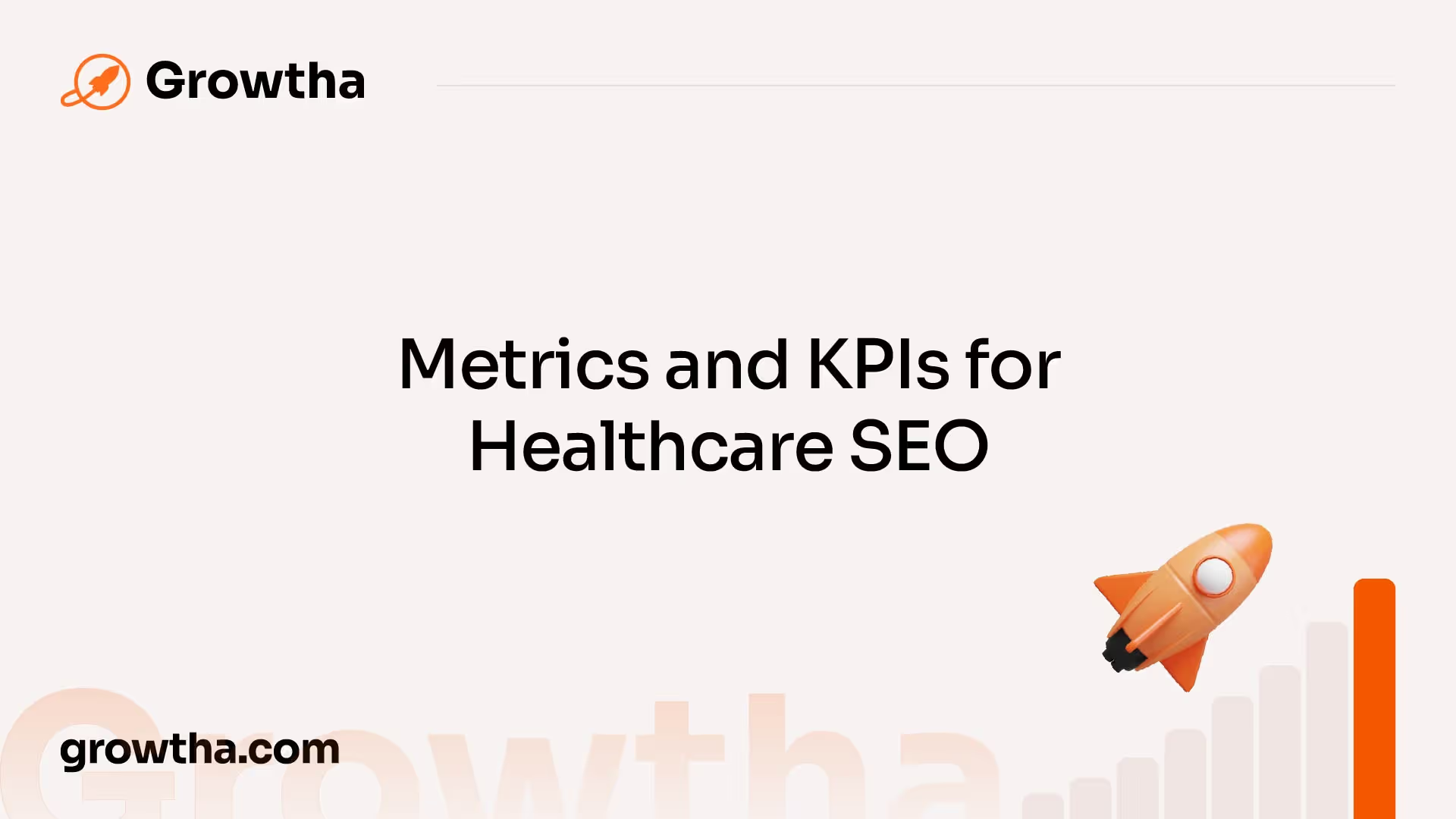
To gauge the success of healthcare SEO efforts, it is essential to track and analyze relevant metrics and Key Performance Indicators (KPIs). These metrics provide valuable insights into the effectiveness of optimization strategies and help healthcare organizations refine their SEO approaches. Let's explore some key metrics and KPIs for healthcare SEO.
Organic Website Traffic
Among the primary goals of medical SEO is to increase organic website traffic. This metric measures the number of visitors who arrive at a website through organic search engine results. It indicates how well optimization efforts resonate with potential patients and provides insights into patient search behavior and interests, allowing for tailored content to better meet their needs [3].
Monitoring organic website traffic over time enables healthcare organizations to assess the impact of their SEO strategies and identify areas for improvement. By consistently analyzing this metric, healthcare providers can make data-driven decisions to optimize their websites and attract more patients.
Keyword Rankings
Tracking keyword rankings is vital in assessing the effectiveness of healthcare search optimization. High rankings for specific keywords indicate a well-optimized site, and creating more content around those words can boost organic traffic. Regularly updating content and optimizing meta tags helps maintain a high keyword ranking [3].
By monitoring keyword rankings, healthcare organizations can identify which keywords drive the most traffic and focus their optimization efforts accordingly. It helps them understand the competitive landscape and adjust their strategies to improve visibility in search engine results.
Click-Through Rates
Click-Through Rate (CTR) is a crucial metric in medical SEO, measuring the percentage of users who click on a search listing after seeing it. A high CTR indicates that the search listing is appealing and relevant to users, reflecting the effectiveness of the SEO strategy [3].
Monitoring CTR helps healthcare organizations evaluate the quality and relevance of their meta titles and descriptions. By optimizing these elements, providers can increase their chances of attracting clicks, driving more traffic to their websites, and ultimately acquiring more patients.
Backlink Profile Monitoring
Monitoring the backlink profile, which includes the quality and quantity of external websites linking to your site, is crucial for enhancing a site's authority and improving search engine rankings in medical SEO.
A strong backlink profile indicates that reputable websites recognize the value and credibility of the healthcare organization's content. By fostering relationships with authoritative websites and acquiring high-quality backlinks, healthcare providers can improve their search engine rankings and increase their visibility to potential patients.
By tracking these key metrics and KPIs, healthcare organizations can measure the success of their SEO efforts and make data-driven decisions to optimize their online presence. It's important to regularly analyze these metrics, adapt strategies as needed, and stay ahead in the competitive landscape of healthcare SEO.
Mobile Usability in Healthcare SEO
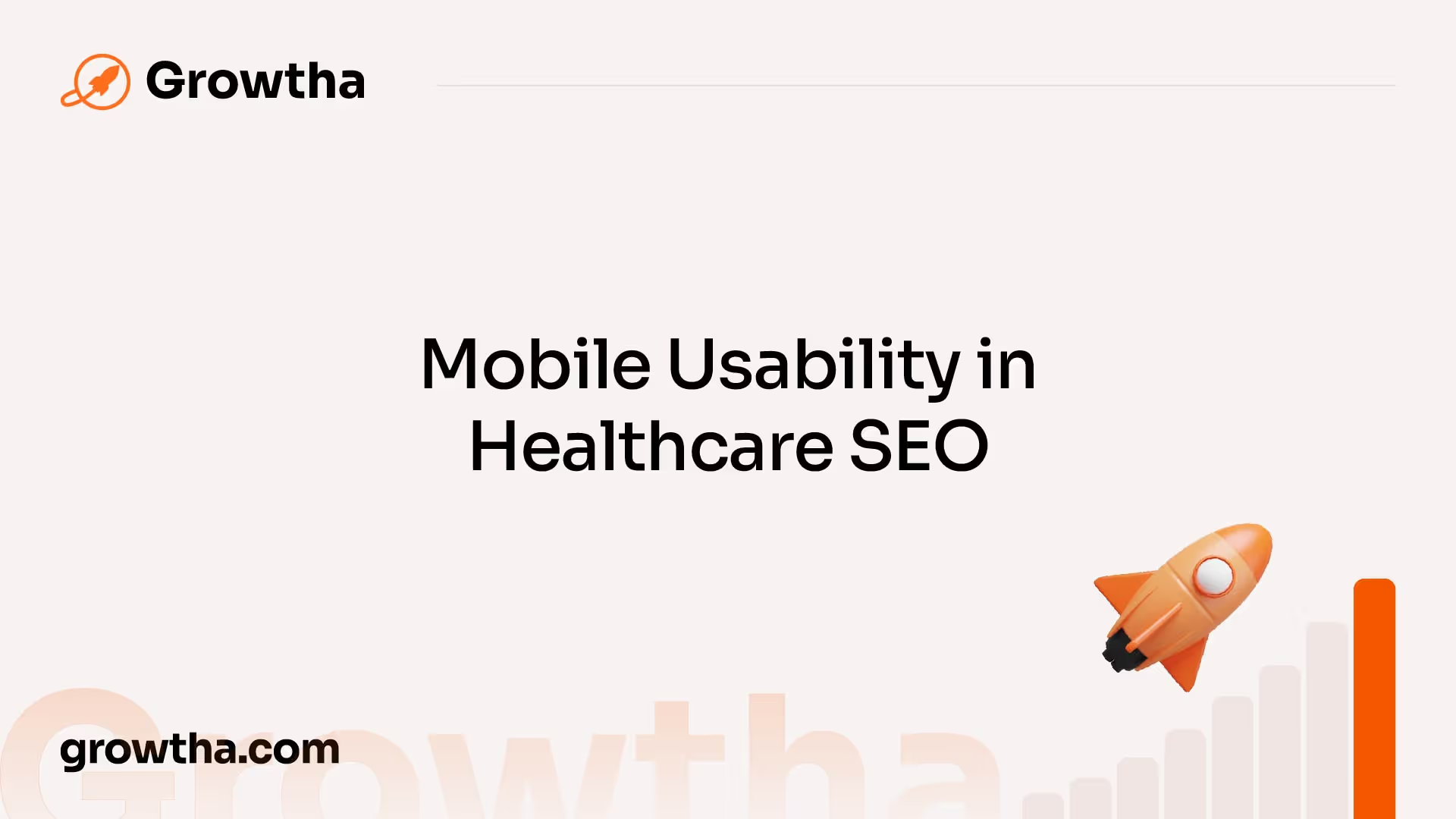
In the digital age, mobile devices have become an integral part of our daily lives. This trend extends to the healthcare industry, where patients and healthcare consumers increasingly rely on their mobile devices to search for medical information. For healthcare organizations, optimizing mobile usability is crucial to ensure a seamless user experience and enhance their search engine optimization (SEO) efforts.
Importance of Mobile Optimization
Mobile usability metrics play a vital role in healthcare SEO. With the majority of internet searches now happening on mobile devices, it is essential for healthcare organizations to adapt to this shift. By improving mobile usability, healthcare websites can align with current trends, increase search rankings, and enhance the overall patient experience [3].
One of the key aspects of mobile optimization is ensuring that your website is responsive. A responsive website design allows your site to adapt to different screen sizes and resolutions, ensuring that it remains accessible and user-friendly across various devices, including mobile phones [4]. This adaptability is crucial in providing a positive user experience, as visitors can easily navigate and interact with your website regardless of the device they are using.
Responsive Website Design
A responsive website design is a fundamental component of mobile usability in healthcare SEO. It involves creating a website that automatically adjusts its layout, content, and functionality based on the device being used. This ensures that users can easily access and navigate your website, regardless of whether they are using a smartphone, tablet, or desktop computer.
Google and other search engines prioritize websites that provide a seamless mobile experience. Page load speed is one of the critical factors in mobile optimization. Google recommends a page load speed of under two seconds and favors quick-loading websites over slower ones [5]. A responsive website design helps to optimize page load speed, contributing to better user experience and improved search rankings.
By implementing a responsive website design, healthcare organizations can ensure that their websites are accessible and user-friendly across different devices. This not only enhances the overall patient experience but also positively impacts SEO efforts. It is crucial for healthcare organizations to invest in mobile optimization to stay ahead in the digital landscape and meet the evolving needs of their target audience.
Incorporating mobile usability best practices, such as responsive website design, can significantly improve the effectiveness of healthcare SEO. By providing a seamless and user-friendly experience for mobile users, healthcare organizations can enhance their online visibility, engage patients, and drive conversions.
Social Media in Healthcare
Social media has become an integral part of our daily lives, and its impact extends to the healthcare industry as well. In this section, we will explore the role of social media in healthcare and the associated risks and benefits.
Role of Social Media in Healthcare
Social media platforms offer healthcare organizations and professionals a valuable tool for connecting with patients, improving networking opportunities, and enhancing education and research activities. They provide a platform for healthcare professionals to share knowledge, engage with the community, and stay updated on the latest news and discoveries [6].
For healthcare professionals, social media can be utilized to improve health outcomes, develop a professional network, motivate patients, and provide valuable health information to the community. Furthermore, it allows professionals to increase their personal awareness and stay up to date with advancements in the field.
Healthcare organizations also leverage social media to enhance their visibility, communicate with the community and patients, market products and services, and provide customer service and support [6]. It provides an avenue for organizations to build trust, engage with their audience, and share relevant information about healthcare services and initiatives.
Risks and Benefits of Social Media for Healthcare
While social media offers numerous benefits, it also comes with certain risks that need to be carefully managed. One of the risks is the potential for unreliable information to be shared on social media platforms. It is crucial for healthcare professionals and organizations to ensure that the information they provide is accurate, evidence-based, and reliable. Fact-checking and ensuring the credibility of sources are vital in maintaining the integrity of healthcare information.
Another risk associated with social media in healthcare is the violation of patient privacy rights. Healthcare professionals must adhere to patient confidentiality regulations and guidelines when using social media. It is essential to avoid disclosing any patient-specific or identifiable information to protect patient privacy and maintain trust.
On the other hand, the benefits of social media in healthcare outweigh the risks when used appropriately. It provides a platform for healthcare organizations and professionals to engage with patients, share educational content, and raise awareness about health-related topics. Social media can also foster a sense of community and support among patients, allowing them to connect with others who may be experiencing similar health conditions.
By utilizing social media effectively, healthcare organizations and professionals can extend their reach, provide valuable information, and engage with their audience. However, it is crucial to maintain ethical practices, follow privacy regulations, and ensure the accuracy and reliability of the information shared.
Overall, social media has the potential to revolutionize healthcare communication and education. When used responsibly, it can be a powerful tool for improving healthcare outcomes and empowering patients with valuable information.
Ethical Issues in Healthcare
In the realm of healthcare, several ethical issues arise that require careful consideration. These issues revolve around patient confidentiality, healthcare accessibility, and the allocation of limited resources.
Patient Confidentiality
Patient confidentiality stands as one of the most significant legal and ethical issues in healthcare. Healthcare providers and employees have an obligation to secure and protect the privacy of all patient medical records and health information. Upholding patient confidentiality fosters trust between healthcare professionals and patients, allowing individuals to seek care without fear of their personal information being shared without consent [7].
Healthcare organizations must implement robust security measures, such as secure electronic systems and strict access controls, to safeguard patient confidentiality. Violation of patient confidentiality can have severe legal and reputational consequences for healthcare providers.
Healthcare Accessibility
Healthcare accessibility poses a significant ethical issue in the healthcare landscape. The rising cost of healthcare and associated insurance policies creates ethical dilemmas, such as denying medical treatment to individuals based on their insurance status or charging exorbitant prices for necessary care. This issue often becomes a topic of debate in politics, where profitability and public health interests come into direct conflict [7].
Ensuring healthcare accessibility requires a comprehensive approach that considers affordability, equitable distribution of resources, and the removal of barriers that prevent individuals from receiving necessary care. Healthcare organizations can play a role in addressing this ethical issue by advocating for policies that promote universal access to healthcare and implementing programs that provide affordable and accessible healthcare services to underserved populations.
Allocation of Limited Resources
The allocation of limited resources is another ethical issue in healthcare. Situations arise where healthcare providers must make difficult decisions regarding the allocation of donor organs, medications, and tools of support. Limited availability of these resources presents ethical considerations, often leading to moral conflicts.
In the case of limited donor organs, ethical discussions focus on finding ways to increase the number of living donors to meet the demand. Medications and tools of support can also present ethical challenges due to limited supply, raising questions about fair distribution and prioritization of patients who would benefit the most [7].
Healthcare organizations must develop transparent and equitable protocols for the allocation of limited resources, ensuring that decisions are made based on well-defined criteria and ethical principles. Open dialogue, collaboration, and ethical frameworks can guide healthcare providers in making these challenging decisions while upholding the values of fairness and patient well-being.
Addressing ethical issues in healthcare requires a thoughtful and conscientious approach. By prioritizing patient confidentiality, striving for healthcare accessibility, and ensuring fair allocation of limited resources, healthcare organizations can navigate these ethical dilemmas with the utmost care and integrity.
References
[1]: https://hawksem.com/blog/healthcare-seo/
[2]: https://www.cardinaldigitalmarketing.com/healthcare-resources/blog/seo-guide-fundamentals-for-growth/
[3]: https://www.digitalauthority.me/resources/best-medical-seo-metrics-kpis/
[4]: https://ignitedigital.com/resources/blog/search-engine-optimization-seo/measuring-the-success-of-your-healthcare-seo-efforts/
[5]: https://www.linkedin.com/pulse/top-3-healthcare-seo-tactics-local-on-site-off-page-shyam-singh
[6]: https://www.ncbi.nlm.nih.gov/pmc/articles/PMC4103576/
[7]: https://www.sermo.com/resources/ethical-issues-in-healthcare/







